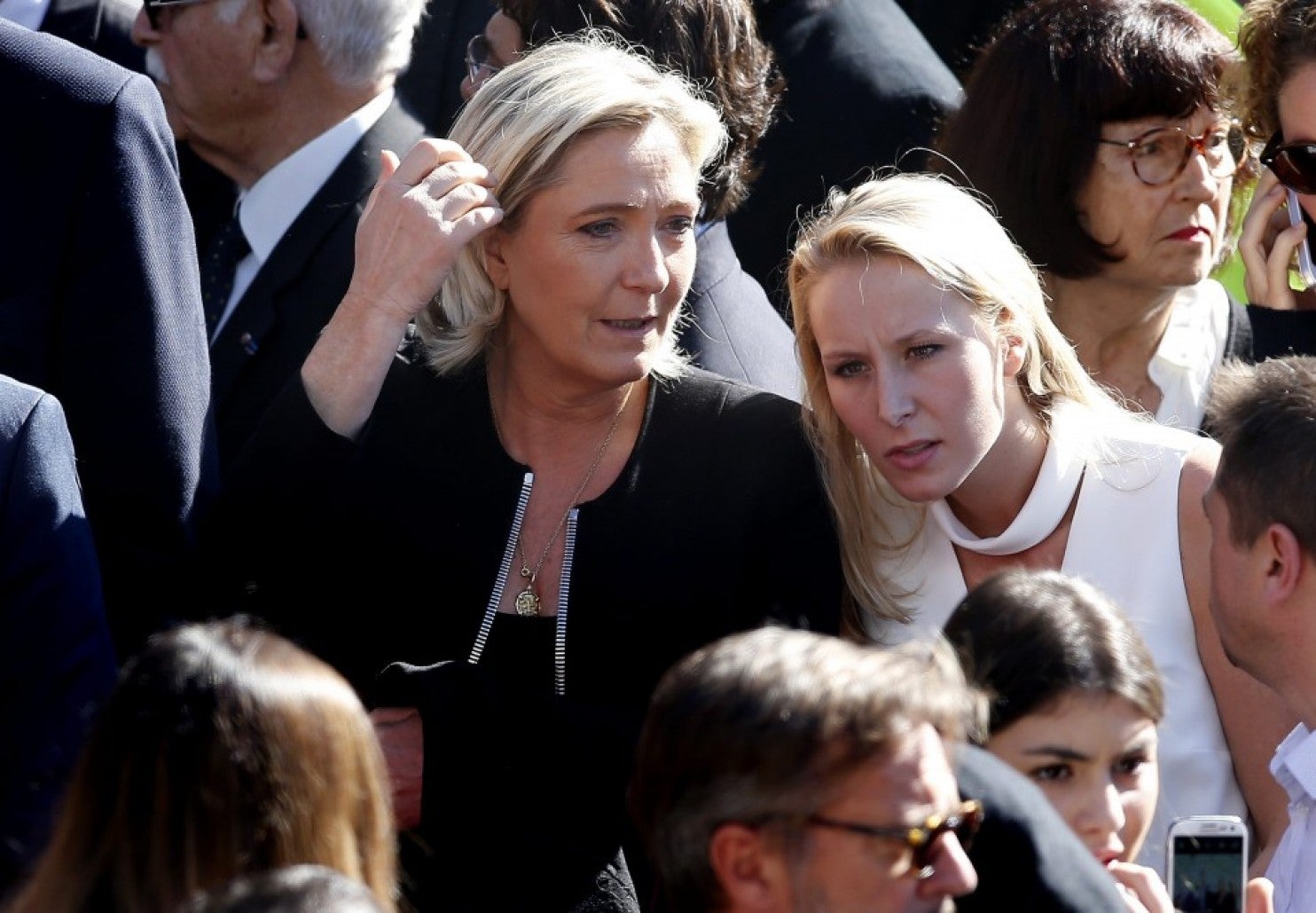Is Trump reaching out to Europe’s far right before he talks with the heads of state?
The president-elect may be forging relationships with ultranationalists, populist factions overseas

Your support helps us to tell the story
From reproductive rights to climate change to Big Tech, The Independent is on the ground when the story is developing. Whether it's investigating the financials of Elon Musk's pro-Trump PAC or producing our latest documentary, 'The A Word', which shines a light on the American women fighting for reproductive rights, we know how important it is to parse out the facts from the messaging.
At such a critical moment in US history, we need reporters on the ground. Your donation allows us to keep sending journalists to speak to both sides of the story.
The Independent is trusted by Americans across the entire political spectrum. And unlike many other quality news outlets, we choose not to lock Americans out of our reporting and analysis with paywalls. We believe quality journalism should be available to everyone, paid for by those who can afford it.
Your support makes all the difference.Marion Maréchal-Le Pen – a rising star in France’s far-right National Front and the niece of the party’s leader, Marine Le Pen – wrote on Twitter on Saturday that representatives of President-elect Donald Trump had invited them to “work together”.
Ms Le Pen, 26, became the youngest member of France’s parliament in 2012. She was elected to represent Vaucluse, a region in southern France with heavy ties to the National Front, a party founded by her grandfather, the 88-year-old Jean-Marie Le Pen. He once referred to the Nazi concentration camps as a “detail of history”.
“I answer yes to the invitation of Stephen Bannon, CEO of @realDonaldTrump presidential campaign, to work together,” Marion Maréchal-Le Pen tweeted.
Mr Bannon – the former executive chairman of Breitbart News Network with ties to the so-called alt-right – is rumoured to be among the possible candidates for Trump’s chief of staff.
Her tweet reflected a highly unusual phenomenon: an American president-elect seeking to forge relationships with ultranationalist and populist factions overseas that are often sharply critical of their countries’ governments. It also raised the question of whether Mr Trump and his representatives have been reaching out to foreign populist parties before first reaching out to foreign heads of state.
Also on Saturday Nigel Farage, the interim leader of Ukip, was seen at Trump Tower in New York. The principal architect of June’s Brexit vote – in which Britain shocked the world by voting to leave the European Union – may have been the first British politician to meet America’s newly elected president.
Prime Minister Theresa May was the 11th foreign head of state that Mr Trump called after his victory, causing the British media to speculate on whether her place in the order had constituted a snub. But Mr Trump called Ms May before he called French President François Hollande, who in the months before the election was a particularly outspoken critic of the billionaire real estate developer and his rhetoric.
Mr Trump’s relations with foreign politicians have been an issue in the campaign. In a statement last week, Russian Deputy Foreign Minister Sergei Ryabkov said that Kremlin officials had been in contact with members of Mr Trump’s campaign before the election, prompting further questions about the nature and extent of the relationship between Mr Trump and Russian President Vladimir Putin.
In Europe, France’s National Front is chief among the many right-wing parties whose commitment to ethno-nationalism and whose distaste for an American-anchored world order has found a natural ally in Mr Putin’s Russia. In 2014, Marine Le Pen accepted a $9.8m (£7.8m) loan from the Moscow-based First Czech-Russian Bank, insisting that French banks would not lend to her. In February, the National Front’s treasurer confirmed reports in French media that the party would appeal to Russia again for an additional $29.3m if French banks continue refusing its requests. The money would be used for the party’s campaign in the French presidential elections next spring.
After the Brexit vote and Mr Trump’s victory, observers across the world are wondering whether Ms Le Pen will be the third chapter in a global populist revolt. Although experts still say her chances of winning the presidency are unlikely, her popularity has continued to rise because of frequent terrorist attacks and Europe’s ongoing migration crisis.
© Washington Post
Join our commenting forum
Join thought-provoking conversations, follow other Independent readers and see their replies
Comments